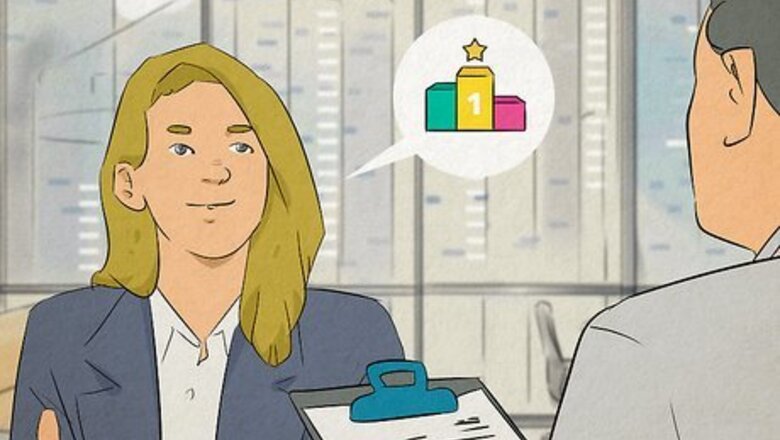
views
- Talk about your past accomplishments, skillset, character, and work ethic when interviewers ask why you’d be a good fit for the job.
- Practice your answer beforehand—it may help you feel more confident and prepared when it’s time for the interview.
- Offer specific examples of your qualifications so employers can see what a valuable candidate you are, and explain what you can contribute as an employee.
Answering “Why Are You a Good Fit for This Job?” in an Interview
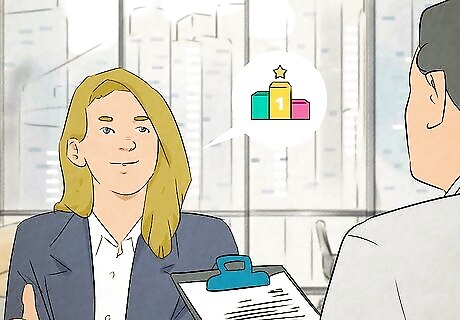
Emphasize your accomplishments that are relevant to the job. Drawing upon your previous accomplishments is one of the best ways to convince employers that you'll be a great fit for the job you're applying for. Discuss a couple of your most impressive accomplishments to date; tell your interviewer what you did, how you did it, and how it benefitted your previous employer. For example, you might say, “By updating the workflow process at my previous job, I was able to save the company a significant amount of time and money.” Don’t bring up anything that won’t really prove why you’re a valuable employee for that job. Any accomplishment you discuss should be related to the job you’re applying for.
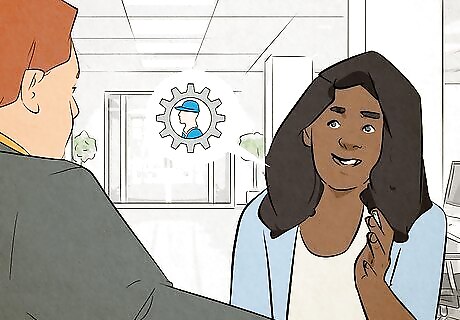
Highlight the skills that would make you a valuable employee. Your skillset also makes you valuable to employers. When the interviewer asks why you’re a good fit, tell them all about the skills you have that are most valuable to the job in question. Again, be sure you know what skills the interviewer might be looking for or prioritizing most—that way, you’re more likely to stand out. For example, you might say, “I’m extremely organized and efficient. In my role as a company coordinator, I scheduled meetings, planned events, and handled day-to-day administrative duties that honed my organizational skills.” Be sure to mention any rare or unique skills that may be desirable. The more unique skills you have that other candidates may not, the more valuable you’ll look to employers. Always use examples rather than simply naming a skill that you have. When you offer specific examples, the interviewer gets more proof that you truly are a good fit for the job.

Give the interviewer a sense of your character and work ethic. Company culture is also a factor in hiring decisions, so try to show your interviewer how your personality and values align with the company. Look at the company’s website (if there is one) before your interview to learn more about its values. Then, explain what about you makes you the best fit possible for the job. For example, try something like, “One of my greatest strengths is the ability to listen to my coworkers’ needs and find ways to support them. I became the de facto problem-solver on my old team because I was always ready to brainstorm solutions with them.” Remember, you don’t need to list out everything on your resume when someone asks you why you’re a good fit for a job. Rather, pick up to 7 of your greatest skills, accomplishments, or personal strengths to focus on that you feel the interviewer will find most impressive. If you want to get a job and don't have experience, for example, focus on your best skills and personal strengths.
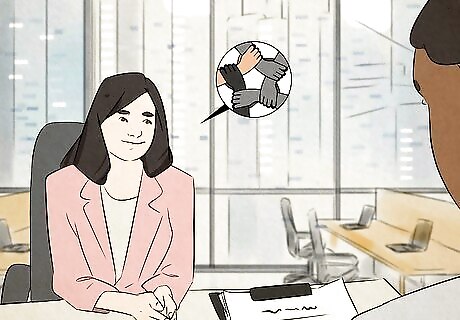
Emphasize your ability to be a team player. Teamwork skills are universally helpful for just about any job, and hiring teams absolutely look for candidates who seem like they can be adaptable and work with other coworkers when they need to. To catch your interviewer’s eye, talk about your experiences collaborating with others professionally in the past. For example, you might say, “I’m a team player. One of my favorite parts of my last job was collaborating with my coworkers because it helped us build camaraderie and ensure the work we did was as strong as possible.”
Best Practices

Review the job listing so you know what interviewers are looking for. No matter how you plan to answer the interviewer’s question, it’s important to know exactly what the job entails and what you’ll be expected to do once you’re hired. Look for desired skills, experiences, and education in the job listing that match yours, and be sure to mention them during the interview. For example, if the job listing mentions that a candidate with strong communication skills is desired, it’d be smart to give the interviewer examples of your own communication skills.

Practice your answer beforehand, but don’t memorize it. The old saying is true—practice really does make perfect! Plan out your answer and practice giving it a few times; that way, you won’t feel so anxious when the interviewer asks. Just remember that memorizing it word-for-word can end up sounding a little robotic; it’s better to boil your answer down to a few main talking points you can discuss naturally during the interview. When you practice your answer before the interview, look for ways to improve each time. For example, you might notice a skill listed on the job description that you forgot to cover and add it as you go.
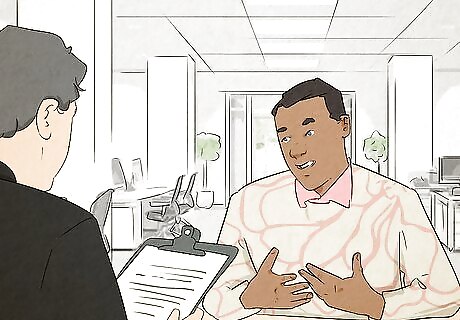
Offer a clear and concise answer. Your interviewer probably isn’t looking for a long speech covering every stage of your career thus far; generally, try to give your answer in about 2 minutes. It’s easy to get lost in the details if your answer is over 2 minutes—but if it’s significantly shorter, the interviewer might feel like they don’t have enough information. Time yourself while practicing to make sure your answer is roughly 2 minutes long. Don’t worry if it’s a little shorter or longer; just try to get in the ballpark.
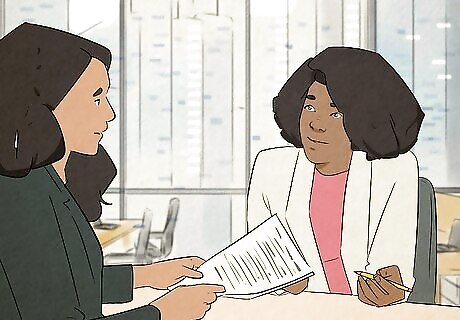
Focus on what you can contribute to the position. You might want this job for a lot of reasons, from the salary to the experience you’d get as an employee. Nonetheless, tailor your answer toward what you could do for the employer if they hire you—not why you want the job. How can you use your experience and skills to help the company? Use your answer to help the interviewer see your value. For example, you might say, “Using the programming skills I developed at might last job, I hope to help this company build successful apps and reach an even broader audience.” Do some research on the company (and the job) to figure out what kind of contributions might be most valuable.

Maintain a positive attitude throughout the interview. Explain why you’re the best candidate for the job, but don’t put down other candidates to do so. No matter how qualified you are, you seem too negative if you focus on why the other candidates aren’t as good as you. Employers tend to look for applicants who can bring positivity to the team—having a good attitude can be just as valuable as relevant skills. There are other ways to make a positive impression on your interviewer as well. For example, greet them with a handshake and a smile when you arrive for the interview. Express enthusiasm for the job as you answer their questions—especially when they ask you why you would be a good fit for the job. End the interview on a positive note by thanking them for their time and reiterating your interest in the job. Let them know you look forward to hearing from them as you leave.
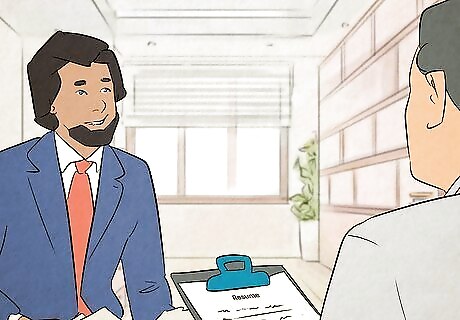
Be honest about your qualifications. No matter how much you want the job, don’t market yourself as somebody that you’re really not. There’s a reason your potential employer is looking for the skills and experience listed on the job posting! If you lie about having it, you might get the job—but the job could also be very difficult for you and, ultimately, not a great fit. If you feel like you could do the job well but don’t have every qualification listed—for example, say the employer is looking for 5 years of experience, and you have 2—take a chance and apply anyway! You never know if the skills and experience that you do have will catch an employer’s eye. Apply for any job you like; just remember to be honest about your qualifications no matter what.
Example Answers
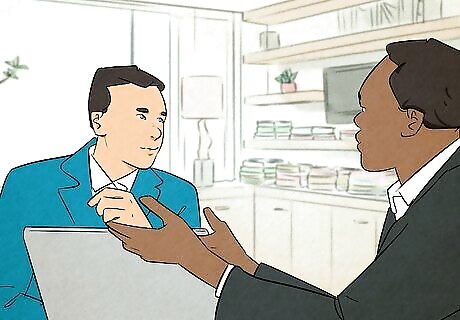
Example 1: Previous Experiences & Accomplishments “My last job helped me grow into a stronger leader and manager, which I believe makes me a great candidate for this position. For example, during my last year, I implemented monthly team meetings, which ultimately led to higher employee satisfaction and smoother teamwork on the projects we completed together.”
Example 2: Skills & Qualifications “During my time at my previous job, I significantly honed my writing and editing skills—to the point that I was given the clearance to self-publish articles. I also learned how to cover topical news stories in a fast-paced environment, which really helped me improve my time management and communication skills. The skills I acquired will help me support and contribute to this company’s mission.”
Example 3: Personality & Confidence “I think my work ethic and dedication to going the extra mile make me an ideal fit for this job. I’m motivated, a self-starter, and I’m a fast learner. For example, at my previous job, I taught myself how to use Adobe InDesign and used it to create brochures and flyers for our business events.”
Example 4: Teamwork & Adaptability “I’m particularly proud of my ability to be a team player and how I learned to be more adaptable and collaborative at my last job. As an editor there, I worked with a whole team of other writers, designers, and publishers to produce our company’s monthly magazine. Everything we did was a team effort.”
Why do employers ask if you’re a good fit for a role?

Employers want to ensure you understand the job and its requirements. They’re also trying to make sure the candidate they hire will be able to do the job according to their standards. Your resume and cover letter have likely already shown that you're a solid candidate, but asking why you’re a good fit helps them double-check that info and hear the facts from you firsthand. Your job is to sell yourself and convince the interviewer to hire you. An interviewer might phrase this question in several ways. For example: Why would you be a good fit for this position? Why do you think this position is a good fit for you? Why should we hire you over other applicants? Why are you the best person for this job? What makes you a good candidate for this position? Why are you a great match for this role? Can you describe why you’re the ideal candidate for this position? So long as you know there are different versions of the same question, you can better prepare yourself to answer it smoothly and confidently!


















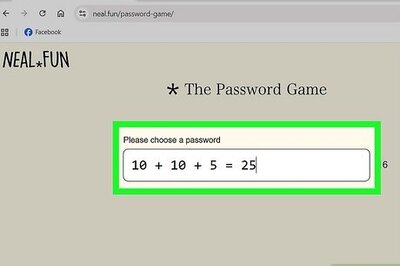
Comments
0 comment